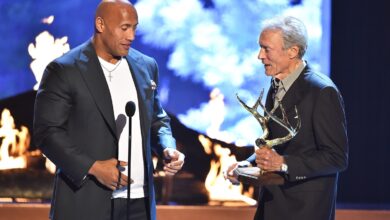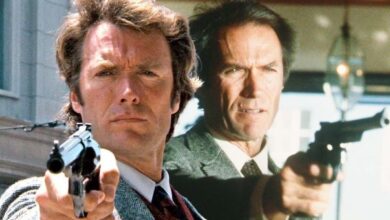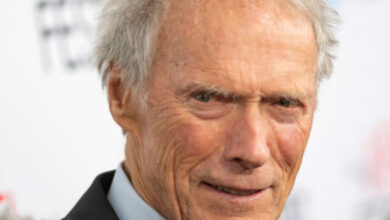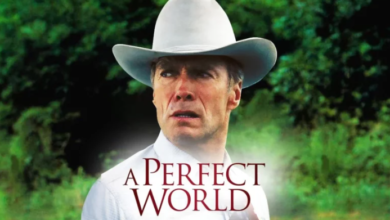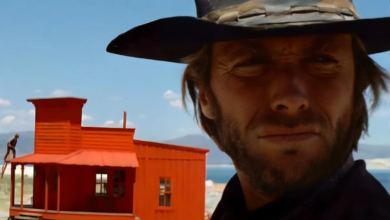Clint Eastwood’s Favorite Movies Of His Own
Clint Eastwood has starred in and directed many classic movies, and here are some of his favorite projects of his own, including Unforgiven.
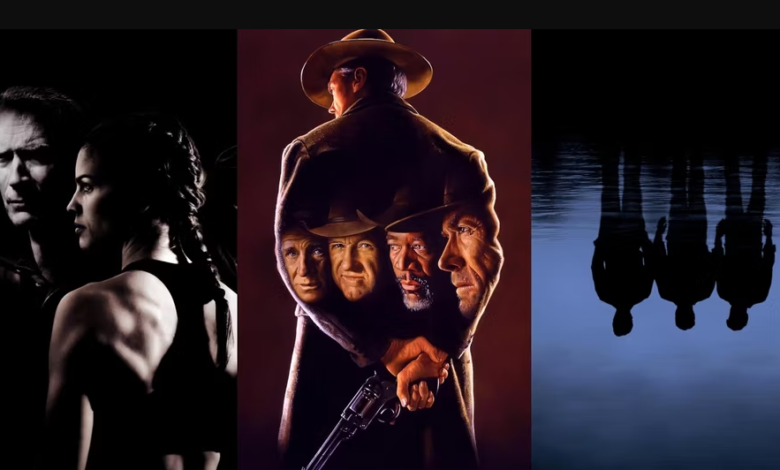
Clint Eastwood has both starred in and directed many classics across his decades-long career, but which movies are his personal favorites? Like many young actors starting out, Eastwood began with small, often uncredited roles in b-moves during the ’50s. At one point, he considered quitting acting following 1958’s Ambush At Cimarron Pass, which the actor himself once dubbed “the lousiest Western ever made.” Thankfully, he soon landed the role of Rowdy Yates in Western series Rawhide, and years later, landed the iconic part of The Man with No Name in A Fistful Of Dollars, the beginning of Sergio Leone’s Dollars trilogy.
In addition to becoming a movie star thanks to the Dollars’ movies and Dirty Harry, Eastwood made his directorial debut with 1971 psychological thriller Play Misty For Me. In the years that followed, Eastwood would increasingly star in and direct his own movies and is famed for his lean, hassle-free approach to filmmaking. Starting with the early 2000s, Eastwood began to increasingly step away from acting roles and focus on directing, though notable exceptions include 2008’s Gran Turino and 2021’s neo-Western Cry Macho.
Eastwood has appeared in and helmed his share of duds, but on the whole, his filmography is littered with critically acclaimed projects. In 2010, he shared with the Associated Press (via CBS News) his six personal favorites. Here are Clint Eastwood’s favorite films of his own.
The Outlaw Josey Wales (1976)

The Outlaw Josey Wales lacks the iconic status of some of his other Westerns, but it’s a personal favorite movie for Clint Eastwood nonetheless. He also directed The Outlaw Josey Wales, which follows the titular outlaw as he seeks revenge for his murdered family amidst the American Civil War. The movie has plenty of action and one-liners, but it has a surprising amount of warmth and melancholy too. Says Eastwood “It addressed the divisiveness of war, and how it can tear at heart and soul. But it also dealt with the rejuvenation of a cynic, re-instilling his life with purpose, and with a surrogate family.”
Bird (1988)

Eastwood has been a lifelong fan of jazz and Bird was a pet project for the filmmaker. Eastwood – who turned down Superman – says behind the camera for this 1988 drama, which is a biopic of famed saxophonist Charlie “Bird” Parker, played by Forest Whitaker. Eastwood himself saw Parker perform in the ’40s, and Bird is a moving portrait of a talented artist who died far too young. Says Eastwood of the movie “It was a good script on the analysis of the self-destructiveness of personality: people who insist on sinking into the abyss. Success, being idolized by other musicians none of it was enough.”
Unforgiven (1992)

Another of Clint Eastwood’s favorite movies of his own, Unforgiven is arguably his most acclaimed movie as star and director. Unforgiven is a dark drama where a former gunslinger returns to his old ways and finds he can never be fully redeemed for his bloody past. Unforgiven stripped away the romanticism of the genre, with the director stating “It was a very rich story, involving loyalty to friends, family and rationalizing deeds. It was a very intelligent script.”
Mystic River (2003)

A somber thriller from 2003, Mystic River also saw Eastwood – who has a handful of franchises – stay behind the camera again. The story follows three Boston friends who were torn apart by a horrible event when they were young, and a murder sees their paths cross again in the future. Mystic River received praise for the performances by leads Sean Penn, Kevin Bacon and Tim Robbins, with Eastwood summarising the themes as “The way sometimes fate deals a bad hand, and it just keeps getting worse and worse, and there is nothing anyone can do.”
Million Dollar Baby (2004)

Another Eastwood favorite is tender boxing drama Million Dollar Baby, where Eastwood stars and directs. He’s the grumpy trainer to Hilary Swank’s talented boxer, with the two forming a father-daughter bond until tragedy strikes out of nowhere. The story appealed to Eastwood because “… it was a story regarding family a search for the daughter he never had a relationship with, and the search for the father that was no longer there for her.”
Letters From Iwo Jima (2006)

Letters From Iwo Jima is another of Clint Eastwood’s favorite movies of his own and is a companion piece to Flags Of Our Fathers – which also featured Clint’s son Scott Eastwood. While the latter film focused on the American invasion, Letters From Iwo Jima explored the story from the perspective of the Japanese soldiers. The movie is one of Clint Eastwood’s most underrated works, though it was more commercially successful than Flags Of Our Fathers.

